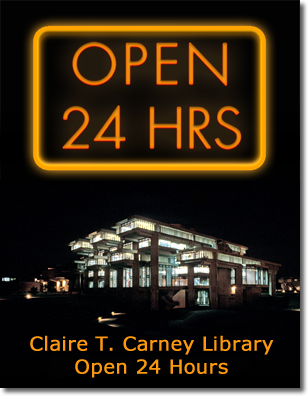 Google Scholar, if you’re not yet familiar with it, searches the web for articles, books and book chapters, dissertations and theses, conference papers, and more. Unlike our library databases, you can’t use complex search terminology. You’ll also need to use your critical thinking skills to confirm that you’re looking at reliable sources, since Google Scholar gathers information from all over the internet, rather than indexing a vetted list of journals like our databases do. However, it’s helpful for locating know items from a reference list and for searching across disciplines, and can turn up some things our databases don’t. It also provides convenient access to free full-text from open access publications, institutional repositories, and other sources.
Google Scholar, if you’re not yet familiar with it, searches the web for articles, books and book chapters, dissertations and theses, conference papers, and more. Unlike our library databases, you can’t use complex search terminology. You’ll also need to use your critical thinking skills to confirm that you’re looking at reliable sources, since Google Scholar gathers information from all over the internet, rather than indexing a vetted list of journals like our databases do. However, it’s helpful for locating know items from a reference list and for searching across disciplines, and can turn up some things our databases don’t. It also provides convenient access to free full-text from open access publications, institutional repositories, and other sources.
Many things you find on Google will be on publisher web sites, which will ask you to pay for access to those articles. Don’t do it! Our library frequently has what you need in full-text, and if we don’t have access to it, we’ll get it for you through our Interlibrary Loan service for no charge. If you have a Google account, you can turn on our library’s full-text (Get It @ UMassD) links, so you can easily access articles from our journal subscriptions. These links also connect you seamlessly to our interlibrary loan service, which again is free for you to use. To add our full-text links, go to Google Scholar Settings, then Library links, and search for UMass Dartmouth. Check the box next to our university name, and be sure to hit Save when you’re done.

If you use RefWorks to manage your citations, Google Scholar can export brief citations to your RefWorks account with a single click. Go to your Google Scholar Settings, and in the Search results section, look for Bibliography manager. Choose RefWorks from the drop down list and then hit the Save button. You’ll need to carefully examine the citations you export; Google Scholar citations can have errors and omissions, and you’ll probably need to make some edits to them after you get them into RefWorks. Citations exported from library databases are typically more reliable and complete.

If you’re interested in who is citing a particular article, Google Scholar provides a “Cited by” link that will give you a sense of how frequently it’s been cited and where. This is drawing from Google Scholar’s own data, so again you’ll need to critically evaluate the sources it lists. A link also appears to Web of Science, one of our subscription library databases that offers this kind of cited reference searching. If you’re doing complex citation analysis for graduate level research or tenure and promotion, contact your library liaison for assistance! Google Scholar won’t be sufficient for that purpose.

Google Scholar is a tool like any other: it’s great for some things but not for others, and it requires thought and skill to use effectively. While it’s not a substitute for the library databases we subscribe to, it can certainly be a helpful supplement, and our librarians can help you learn to make the most of it. Just contact your library liaison (https://library.umassd.edu/help/liaisons/) or use our Ask a Librarian service (https://library.umassd.edu/help/ask-librarian) if you have questions!





